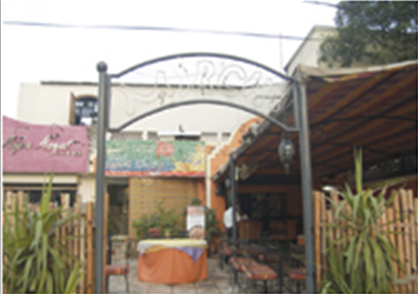Lahore: History
This is a collection of articles archived for the excellence of their content. Readers will be able to edit existing articles and post new articles directly |
Lahore: Memories
August 19, 2007
ARTICLE: Memories of Lahore
By Intizar Husain
“IT is spiritual. Please speak softly. It is intellectual. Please maintain composure”. This piece of advice seems a bit strange seeing the times we are living in. However, this advice fits well with an art festival organised in the name of peace. Alaap, an NGO in Lahore, was wiser this year. Having learnt a lesson from last year’s failure, it now organised the festival in a much better way. Also wise was the idea to link the festival with the cause of peace which has eluded us for so long.
We are now living in a violence-ridden age. Bomb blasts and suicidal attacks are order of the day. Excepting those who will not mind these acts if they serve as a means to the so-called better, people in general are in a state of agony yearning for the peaceful days gone by.
So we are now in search of a panacea which will help us to come out of the trouble we are in now. There was a suggestion to seek help from our forgotten tradition of mysticism, in the hope that it will lead us to the benign version of Islam thus paving the way for restoration of human values of love, amity, and tolerance. But the difficulty is that the times when this tradition received sustenance from great Sufis sitting in distant places in the subcontinent was a living force in our society have elapsed. Its revival is not possible through officially or even unofficially organised Sufi seminars and conferences.
But the fine arts are still, to a certain extent, alive with us. The same is true with our literary tradition. Mushaira is still among the most popular institutions left with us. So culturally we are still in a position to counteract the pernicious influences coming from the schools of obscurantism flourishing in our society. When properly organised by Alaap, its arts festival attracted the attention of the art lovers and peace-loving people. It also succeeded in receiving cooperation from various artists, writers and intellectuals in the city. The programme included a series of cultural shows, mehfil-i-mausiqi, mushaira, stage play, book exhibition and discussions on topics related to culture and arts. The liveliest discussion was the one about Lahore as the city that it once was and is now no more. Each speaker was trying to describe the city as he had seen and experienced it.
In fact Lahorites are at present are living in two cities at one and the same time; the one they are actually living in and the other which is enshrined in their sweet memories. The two cities are engaged in a clash, and from this clash ensues their nostalgia for the city that has almost vanished under the pressure of growing commercialisation. How earnestly they remember their old Mall, which with its sparse slow traffic gave the impression of being reserved more for ramblers than for riders. With no rickshaws or motorbikes in sight the road seemed to be bathed in a peaceful atmosphere. Most prominent among the drivers on this road were young women riding speedily on their bicycles towards university. And most prominent among the tonga riders was that distinguished personality, who could be seen proceeding to the coffeehouse later in the evenings. He was Maulana Chiragh Hasan Hasrat. The coffeehouse itself is now a part of the sweet memories of even those who happened only to be only casual visitors to the area. Not far from the coffeehouse there was the Pak Tea House which closed down recently. Even those who never cared to visit it were seen shocked at this cultural catastrophe. How earnestly they struggled for its restoration, but frankly speaking, even if restored it could no longer be the kind of teahouse that it once was. Times have changed; the city has lost its cultural character and opened its arms to commercialisation.
It was a different world when coffeehouses and teahouses flourished. They flourished in the background of a rich restaurant culture, which distinguished the Mall from other cultural spots of the city. Those sitting there were never seen in a hurry. They could afford to sit for long hours discussing ideas and ideologies over a cup of tea. Each literary theory had its protagonists, who when engaged in a discussion gave the impression of being the defender of a noble cause most dear to them. And it was not simply an intellectual exercise with them. What they discovered as truth in the process of their literary or intellectual thinking stayed as an article of faith with them.
Such were the devoted souls for whom ideas and ideologies meant more than worldly benefits. It was because of them that certain restaurants gained a cultural status. Now we are living in a different world. This world cannot afford to have such souls and such haunts within its fold. The age of coffeehouses and teahouses is gone. Food streets are now the hallmark of life in Lahore.
